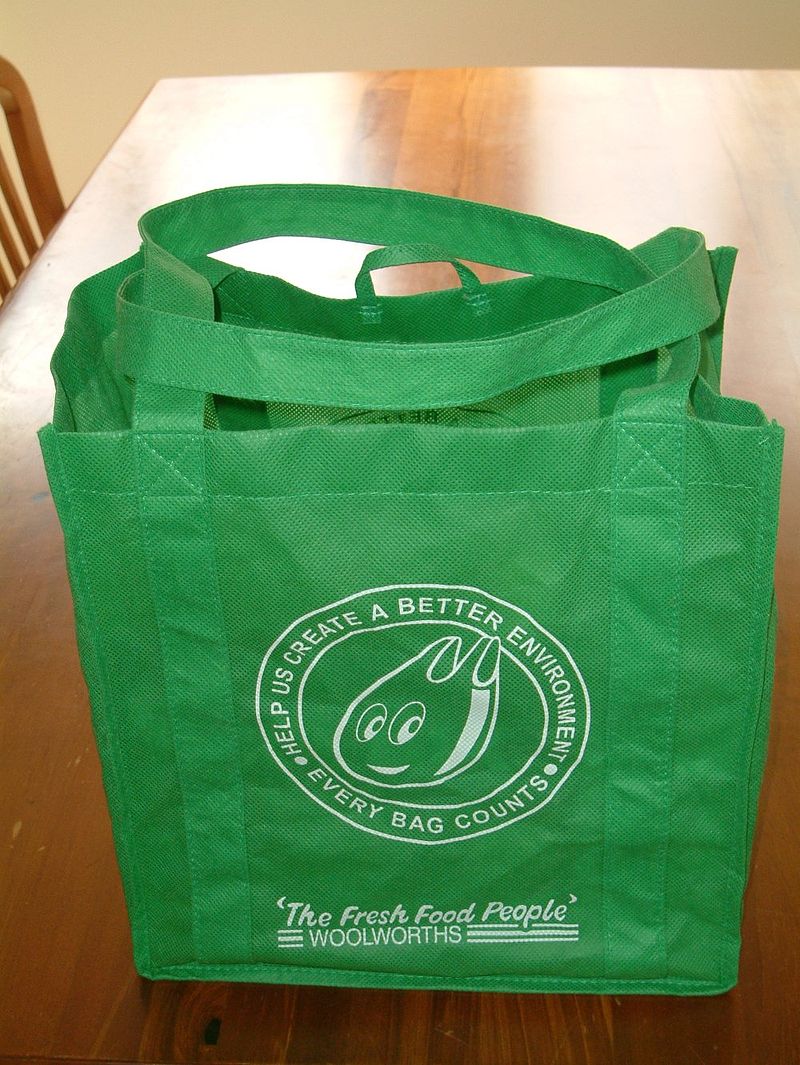Why Reusable Bags Often Have Cookies Inside

Pictured above is a reusable shopping bag, typically made of canvas or other durable material and designed to carry one’s purchases home from the grocery store, pharmacy, or other retailer. While some stores offer incentives to shoppers who bring their own bags, the majority of people who use such tote bags probably do so on their own volition, aiming to be more ecology-minded when buying organic frozen pizza. You, the eco-bag-using shopper — you’re doing good. And it feels good to do so.Which is probably why there are cookies in the bag.
Okay, maybe not cookies. Maybe it’s potato chips or some other tasty but not-so-good-for-you item typically categorized as “junk food.” But whatever it is, the item is there more often than it would be had you used the disposable, store-bought bags. At least that’s what researchers Uma R. Karmarkar and Bryan Bollinger, professors at Harvard’s and Duke University’s business schools respectively, conclude in a paper published just a few months ago. As the Atlantic reported, the professors “analyzed loyalty-card data from some 140,000 trips to a single grocery store in California in the mid-2000s,” which also had data about whether the purchasers also provided their own bags (likely represented by a discount on their bills.) The researchers noticed that, unsurprisingly, BYOBer (bring your own bag-ers, to borrow from a similar acronym) filled their bags with organic products — they were 13% more likely to buy organic products than the “paper or plastic?” crowd. But something else popped up — junk. The researchers found that our green purchasers bought 7% more cookies, chips, and candy than other shoppers.
The correlation doesn’t necessarily mean there’s a causal connection between going green and then expanding the term’s definition to include limited-edition key lime pie-flavored Oreos. (Those are real, by the way, and no, I didn’t buy any at the grocery store this week, but I admit it was a close call. I also, anecdotally, did not bring my own shopping bag to the store.) But Professors Karmarkar and Bollinger offer a potential explanation regardless, called the “licensing effect.” NPR summarizes it well: “when people feel they’re doing something hard or something virtuous, they often give themselves license to do something that rewards themselves.” We see this in many contexts — a 2010 report in TIME notes that holiday shoppers often buy a little something extra for themselves while purchasing gifts for others, for example.
In this case, by buying organic food and using your own bag, you’re doing good for yourself and for the world at large. Someone should recognize this accomplishment and give you a prize. In fact, you’re such a good person, you should just treat yourself. And now that you think about it, doesn’t a cookie sound good?
Thought so.
Bonus Fact: Being an eco-conscious shopper may make you a bit more pudgy, per the above. But even worse, it may make you a bad person. According to a 2010 paper (pdf) by University of Toronto psychologists Nina Mazar and Chen-Bo Zhong, “people act less altruistically and are more likely to cheat and steal after purchasing green products as opposed to conventional products.” Per the New York Times, the authors attributed this result to the licensing effect — “acting upon one’s values establishes moral credentials that can subsequently license deviating behavior.”
From the Archives: Accidentally Awesome: The history of chocolate chip cookies.
Take the Quiz: Unscramble the cookies!
Related: A ten pack of reusable grocery bags. (The bulk pricing suggests you don’t get all that many re-uses out of them, but the reviews are pretty good, so, who knows.) Does not come with cookies. Does come in black to hide your cookies from disapproving onlookers.
